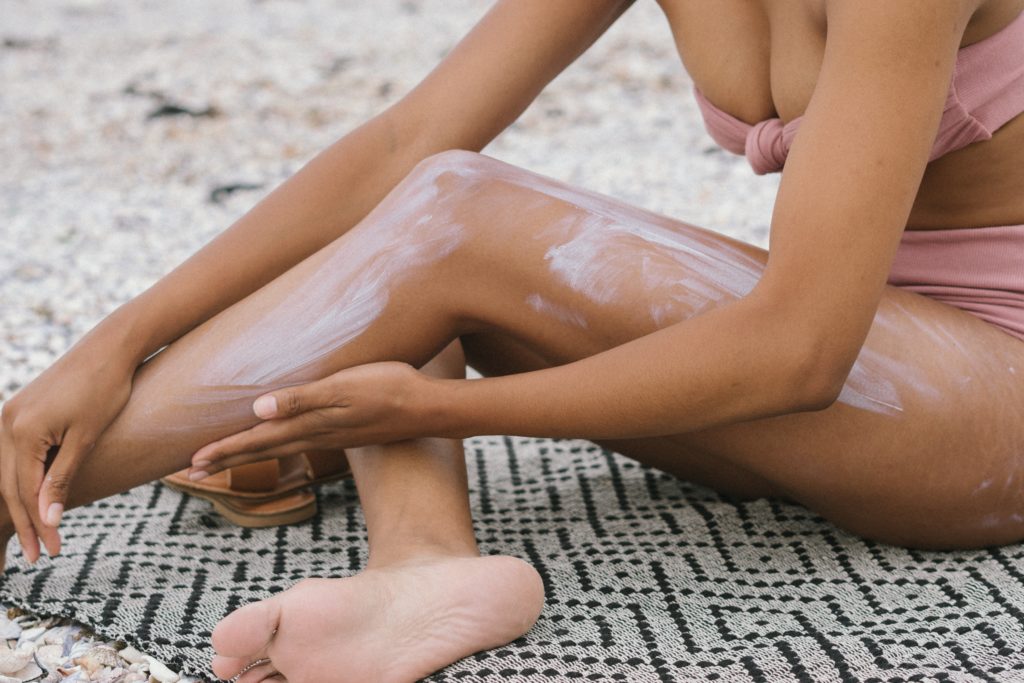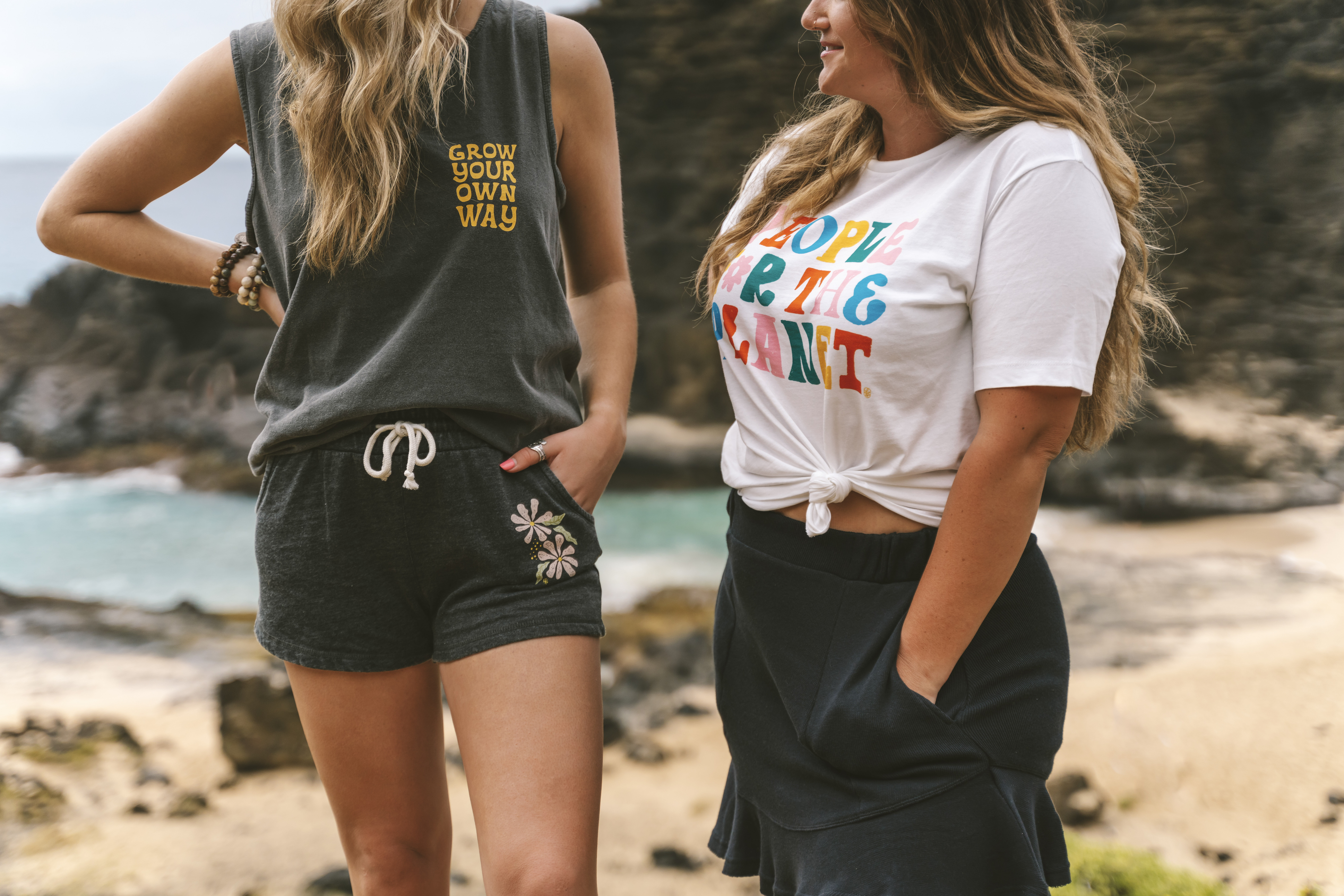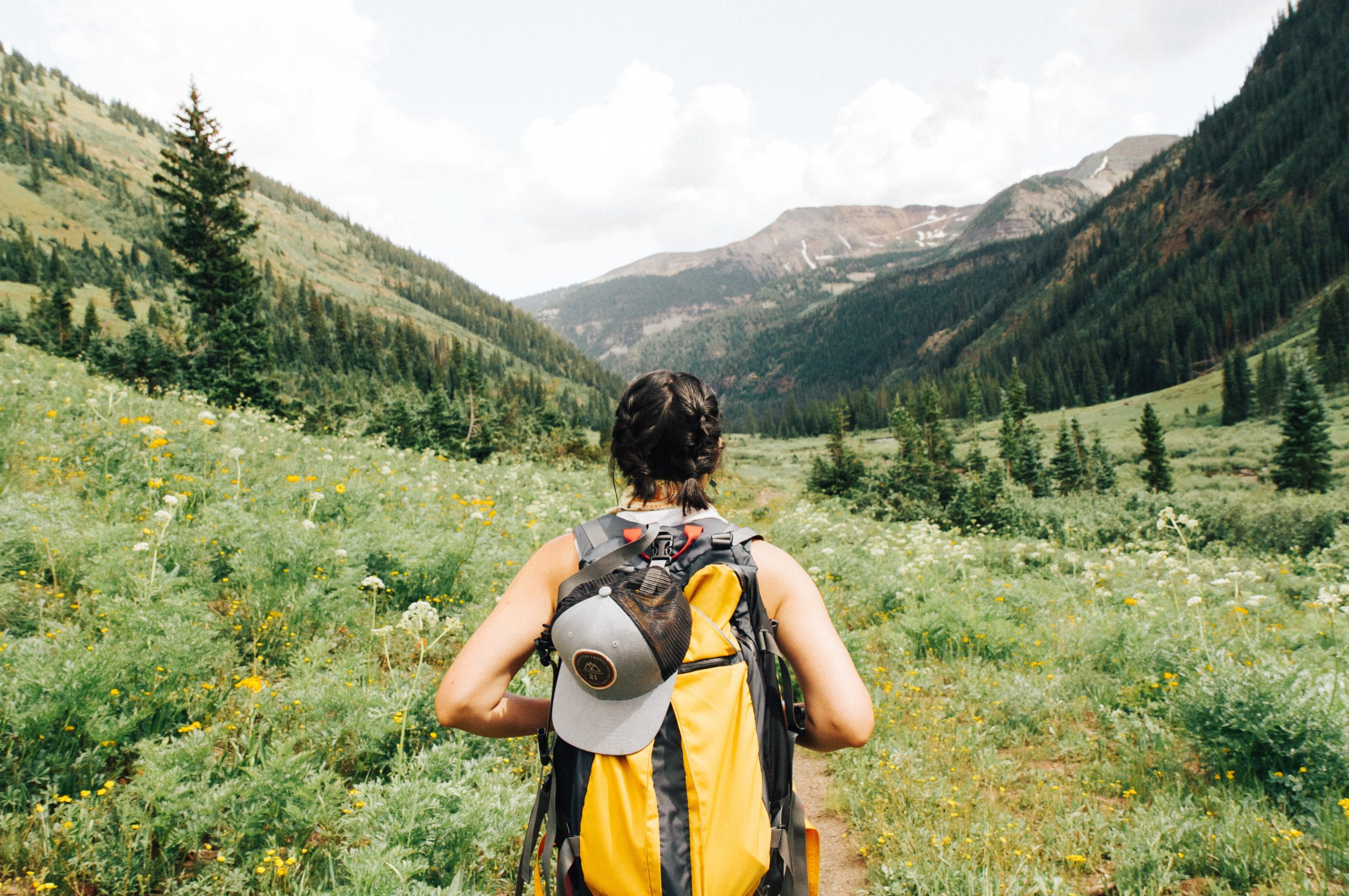The eco-friendly outdoor essentials we keep in our backpacks
Before we get into this list, we absolutely urge everyone to follow local rules and policies when it comes to going outside. Depending on where you live and your circumstances, we know going outdoors doesn’t make sense for everyone. But if it’s allowed and you feel safe doing so, this COVID-19 guide from Leave No Trace is full of helpful tips for navigating the outdoors during times of coronavirus. And like always, whether you’re on a trail or in the market, remember to practice physical distancing!
Is there anything more desirable right now than wide open space? If you’re like us, you’ve already googled trips to Alaska, the Pacific Crest Trail, and the words “remote places to visit in 2020” at least 50 times. And since most trips involving planes and trains are on hold, we’re viewing this period as an ideal time to venture thoughtfully and sustainably. Now, camping trips and backpacking treks that have been on our bucket lists for years are all the more enticing. Plus, spending time connecting with Mother Earth is a beautiful reason to get out of those cringe-y virtual happy hours and awkward Zoom birthday parties — just saying.
So whether you’re planning a backpacking trip in the coming months or dreaming of open trails on your daily walk around the block– here’s our list of eco-friendly backpack essentials for all your outdoor adventures. That way, whenever you feel safe to explore, you’ll be ready to go!
All the eco-friendly essentials we keep in our backpacks
1. Prevent bug bites with eco-friendly bug repellent
As much as we love all creatures, we also know mosquito bites are no joke. Which is why we keep those silent flyers at bay with non-toxic bug spray.
One of the first things to look out for when shopping for bug spray is DEET. Long story short, DEET is an extremely effective bug spray, but it’s known to damage plastic (!!!) and cause short-term health effects like eye irritation, nausea, and headaches. And worse, it can cause long term effects, such as impaired neurological functions and muscle weakness.
View this post on InstagramA post shared by Sawyer Products (@sawyerproducts) on
While DEET is approved by the Environmental Protection Agency, we prefer Deet-free sprays like Repel’s Plant-Based Lemon Eucalyptus Bug Repellent, which lasts up to six hours and actually works. (Note: it does have a strong lemon smell, but wears off over time.) Another Deet-free option is Sawyer Products 20% Picaridin Insect Repellent, which lasts 12 hours and is fragrance-free.
Also, instead of using aerosols and throwaway wipes — which aren’t great for the planet because they create unnecessary waste and VOCs — simple pump sprays are generally safer options.
Plus, here are extra tips for simple bug-bite prevention:
- Wear long sleeves and long pants in lighter colors because mosquitoes may be drawn to darker colors
- Stay inside from dusk to dawn, if possible
- Make sure your window screens don’t have holes
- Shower after getting sweaty (as mosquitoes are attracted to the scent of sweat)
- Inspect your home for larvae homes like in clogged gutters, bird baths, and rain puddles
Pro tip: always apply mosquito spray AFTER sunscreen for maximum protection.
2. Protect your skin with planet-friendly sunscreen

We all know the importance of sunscreen. It protects our skin from harmful sun rays, premature wrinkling, and, most importantly, skin cancer. However, the EWG also warns that certain sunscreen ingredients can generate free radicals that can cause damage to the body by accelerating skin aging and even potentially causing skin cancer. Oh, and we can’t forget to mention, sunscreen is a huge culprit when it comes to coral bleaching.
So, what exactly should sun-seekers craving a little vitamin D do? What’s worse sunscreen or no sunscreen? According to the EWG, mineral sunscreen with a zinc or titanium base is the safest way to go.
View this post on InstagramA post shared by Solara Suncare (@solarasuncare) on
Here’s our picks for mineral-based sunscreen:
- Solara Suncare’s Clean Freak Sunscreen
- Supergoop Unseen Sunscreen
- Biossance Squalane + Zinc Sheer Mineral Sunscreen
And like with bug spray, avoid aerosols with sunscreen, which can release tiny yet harmful ingredients into the environment. For more insight on sunscreen, check out this thorough guide from the EPA.
3. Pack yummy veggie-friendly hiking food
Bring a taste of home on your adventures by packing some of your favorite homemade snacks. Go the extra mile and store them in reusable gear like Etee Wraps or Ziptop Bags.
View this post on InstagramUsing only emojis, describe your perfect 3-day weekend 👇… GO! 📸: @krayyyyy
A post shared by Backpacker's Pantry (@backpackerspantry) on
But if you’re going on a longer trek and need meals-to-go, we like the vegan freeze-dried meals from Backpacker’s Pantry and dehydrated plant-based meals from Good to Go (especially the herbed mushroom risotto, YUM).
4. Remember these eco-friendly essentials for the outdoors
Whether you’re going on a long hike or backpacking trek, here are the eco-friendly essentials we always include in our packs.
- Solar Power Battery Charger
- Sunglasses (we like Solo Eyewear, which uses repurposed bamboo and wood + have an awesome company mission)
- Rechargeable headlamps
- Stasher reusable bags
- Hat (we like Tentree’s hats made from recycled polyester and hemp)
- Reusable utensils like these WC bamboo utensils

- Down-free sleeping bags
- Solar lamps (like products from MPowerd)
- Reusable water bottle
- Reusable water filter
And before you go anywhere, be sure to refresh on the 7 Leave No Trace Principles.
Want to learn more tips for your next outdoor adventure (whenever that may be)? Here’s more travel-inspired posts!
- 8 Easy ways to make your summer vacay eco-friendly
- 6 ways to enjoy nature without harming it
- These are 8 of the world’s most eco-friendly cities









